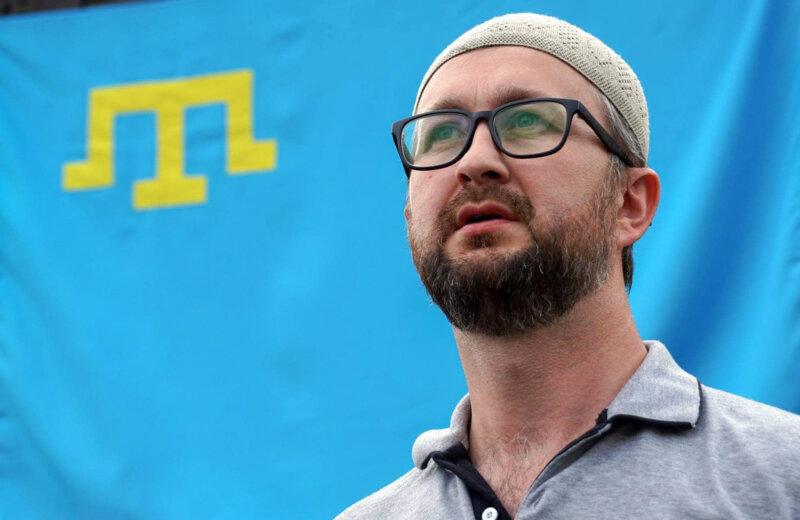Editor’s Note: This op-ed was published in “How We Will Get Crimea Back” — a one-time publication produced by Ukrainian journalists of Crimea origin. The project aims to “find solutions for the de-occupation and reintegration of the peninsula.” The op-ed is republished with permission. It was published on Aug. 19, and on Sept. 3, its author Nariman Dzhelyal was arrested in Crimea.
I often see the notion that everyone who does not agree with the Russian occupation of Crimea and its consequences has left the peninsula, and those who stayed are collaborators. That’s incorrect. Even, despite the fact that a significant part of the peninsula’s population was pro-Russian, the Kremlin carried out a crude staging of ‘free expression of the will’ in front of Russian machine guns and propaganda TV channels.
Hundreds of thousands of Crimeans protested the occupation of the peninsula, boycotted the Crimean ‘referendum’ and are sticking to their views today. Only some of them have left the peninsula, fearing prosecution. Most have stayed in Crimea.
«Къырымда яша!» or «Live in Crimea!» is a popular slogan among Crimean Tatars. It’s a conscious position — living in your homeland no matter what.
Crimean Tatars were fully eradicated from Crimea in 1944. We lost half of our population, went through the difficult process of returning home and setting up lives in our homeland again. Most Crimean Tatars want to stay in their homeland whatever that takes. These convictions are a product of the memories of the older generations where Crimea is always viewed as the Promised Land.
This new occupation of the peninsula is not just a loss of state territory for Crimean Tatars, it’s an encroachment on their motherland. The Russian Empire had annexed Crimea in 1783, destroying the Crimean Khanate and kickstarting the process of mass emigration of a significant part of Crimean natives. This dramatically changed the demographic situation on the peninsula.
Today’s Russia still actively deploys popular Soviet propaganda myths about the Crimean Tatar deportation being just. That’s why Crimean Tatars greatly opposed Russia’s actions in 2014 and are refusing to leave the peninsula now. But this comes at a price. People are forced to adapt to the occupation, integrate themselves into the Russian reality, and live according to the laws and rules imposed on them. Of course, with time, these social distortions face milder reactions. But the spirit of resistance lives on in Crimea, despite prosecutions.
It’s unwise to think that Ukraine would gain something had all the pro-Ukrainian people left Crimea. Quite the opposite. Had Crimea had an absolutely loyal population, Kremlin propagandists would construct the illusion of the «Crimean nation» living in harmony and love for Russia. They’re struggling with this now.
Crimean Tatars are also waging this struggle to preserve their national identity and habitat. Most of them cannot imagine themselves living outside of Crimea. Many Crimean Tatars are hiding their political views, suppressing their protest moods in order to reduce the threat to their safety. They switch their activity to economic and cultural fields, accepting that the political center of the national movement has moved from Simferopol to Kyiv.
But this forced behavior does not in any way indicate that the occupation was accepted. Qırımda yaşa! We are staying at home so that we’ll have a place to come back to.
Nariman Dzhelyal is the deputy head of the Mejlis – the representative assembly of Crimean Tatars. On Sept. 3, after this op-ed was published, he was arrested by Russia’s security forces.



